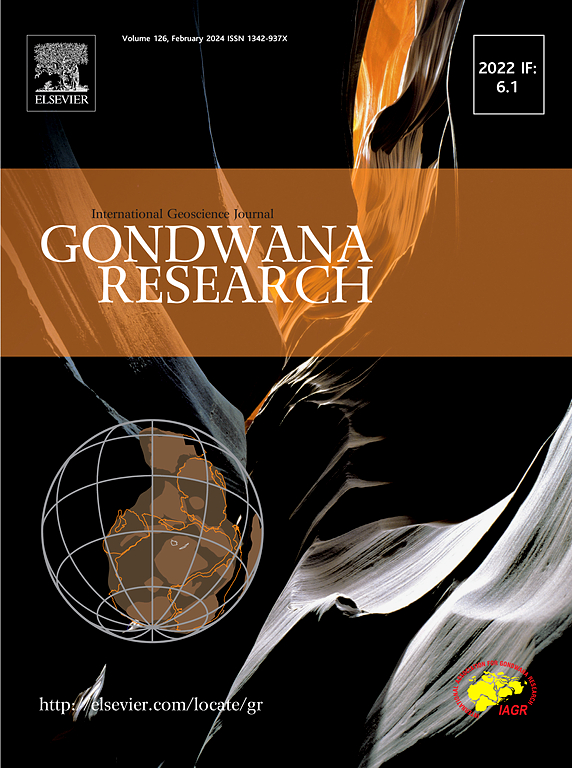The intersection of energy transition and urban planning for sustainable development: enhancing energy efficiency and sustainability
IF 7.2
1区 地球科学
Q1 GEOSCIENCES, MULTIDISCIPLINARY
引用次数: 0
Abstract
This study investigates the key drivers of energy efficiency across Asia-Pacific Economic Cooperation (APEC) countries from 1999 to 2023, utilizing panel data econometrics to explore the influence of structural, environmental, and economic factors. Drawing on robust methodologies—including principal component analysis, correlation analysis, and regression models with Driscoll-Kraay and panel-corrected standard errors—the analysis identifies energy transition, population density, freshwater withdrawals, industry value added, and GDP per unit of energy use as critical determinants of energy efficiency. The results reveal that a progressing green energy transition significantly enhances energy efficiency, indicating the positive role of clean energy integration and grid modernization. Grid modernization upgrades the power grid with technologies like smart meters, energy storage, and real-time monitoring to manage renewables more efficiently and reduce energy losses. Similarly, higher population density modestly improves energy efficiency, likely through urban economies of scale and compact infrastructure. Increased freshwater withdrawals lower energy efficiency, linked to water-intensive processes like cooling systems and manufacturing. Industrial development boosts efficiency, emphasizing the need for technological upgrades and process optimization. However, GDP per unit of energy use shows a negative relationship with energy efficiency, indicating a disconnect between economic productivity and technical energy performance. The findings underscore the importance of holistic and cross-sectoral policy approaches that simultaneously address energy, water, and urban planning challenges. Strategic investments in clean energy technologies, efficient water management systems, industrial innovation, sustainable urbanization, and the development of a circular economy are essential to enhance energy efficiency worldwide.能源转型与可持续发展城市规划的交叉:提高能源效率和可持续性
本研究利用面板数据计量分析方法,探讨了1999 - 2023年亚太经合组织(APEC)成员国能源效率的主要驱动因素,探讨了结构、环境和经济因素的影响。利用强大的方法——包括主成分分析、相关分析和回归模型与Driscoll-Kraay和面板修正的标准误差——分析确定能源转换、人口密度、淡水提取、工业增加值和单位能源使用GDP是能源效率的关键决定因素。结果表明,绿色能源转型的推进显著提高了能源效率,表明了清洁能源并网和电网现代化的积极作用。电网现代化通过智能电表、能源存储和实时监控等技术升级电网,以更有效地管理可再生能源并减少能源损失。同样,较高的人口密度可能通过城市规模经济和紧凑的基础设施适度提高能源效率。淡水提取量的增加降低了能源效率,这与冷却系统和制造业等用水密集型过程有关。产业发展提高效率,强调技术升级和工艺优化。然而,单位能源使用的国内生产总值与能源效率呈负相关关系,表明经济生产力与技术能源绩效之间存在脱节。研究结果强调了同时应对能源、水和城市规划挑战的整体和跨部门政策方法的重要性。在清洁能源技术、高效水管理系统、工业创新、可持续城市化和发展循环经济方面的战略投资对于提高全球能源效率至关重要。
本文章由计算机程序翻译,如有差异,请以英文原文为准。
求助全文
约1分钟内获得全文
求助全文
来源期刊

Gondwana Research
地学-地球科学综合
CiteScore
12.90
自引率
6.60%
发文量
298
审稿时长
65 days
期刊介绍:
Gondwana Research (GR) is an International Journal aimed to promote high quality research publications on all topics related to solid Earth, particularly with reference to the origin and evolution of continents, continental assemblies and their resources. GR is an "all earth science" journal with no restrictions on geological time, terrane or theme and covers a wide spectrum of topics in geosciences such as geology, geomorphology, palaeontology, structure, petrology, geochemistry, stable isotopes, geochronology, economic geology, exploration geology, engineering geology, geophysics, and environmental geology among other themes, and provides an appropriate forum to integrate studies from different disciplines and different terrains. In addition to regular articles and thematic issues, the journal invites high profile state-of-the-art reviews on thrust area topics for its column, ''GR FOCUS''. Focus articles include short biographies and photographs of the authors. Short articles (within ten printed pages) for rapid publication reporting important discoveries or innovative models of global interest will be considered under the category ''GR LETTERS''.
 求助内容:
求助内容: 应助结果提醒方式:
应助结果提醒方式:


